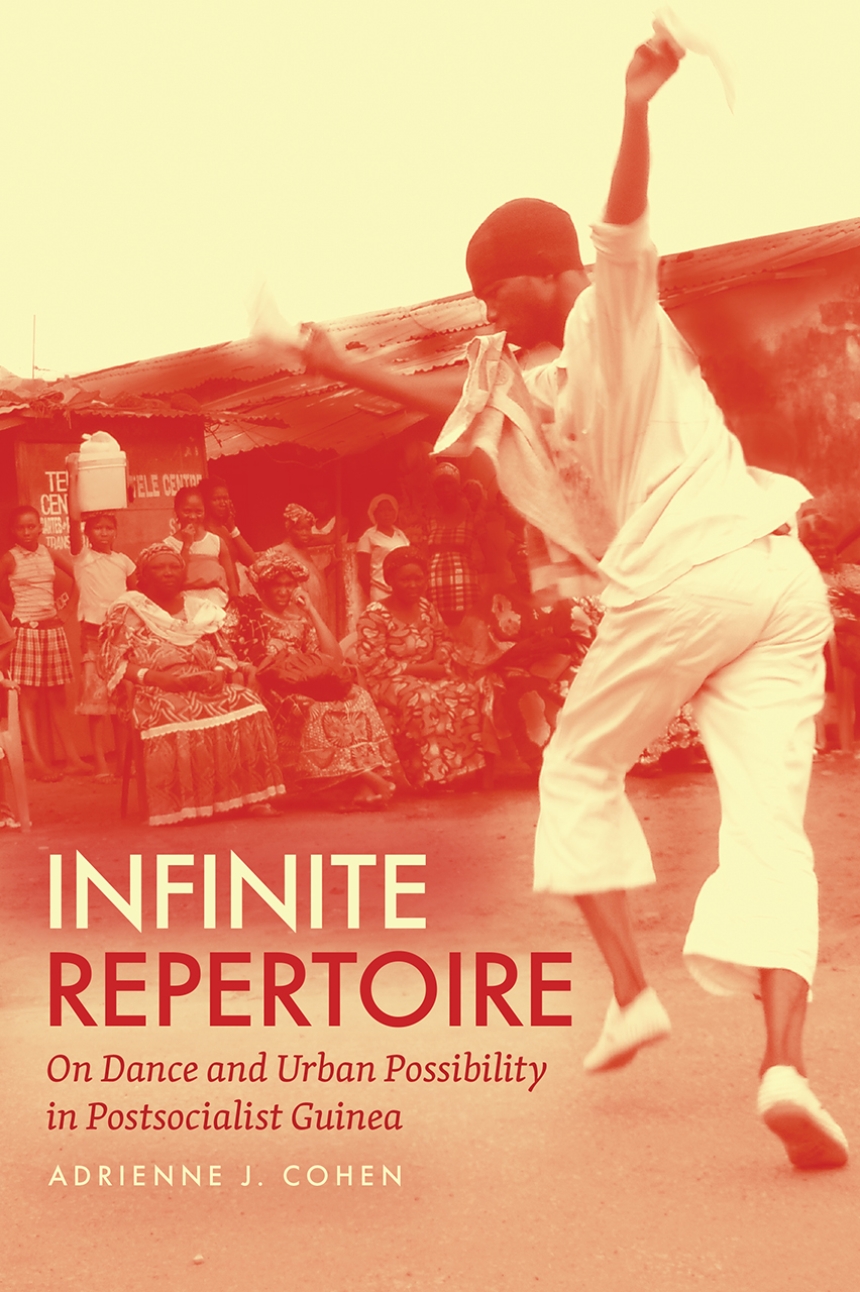Infinite Repertoire
On Dance and Urban Possibility in Postsocialist Guinea
9780226781020
9780226762845
9780226781167
Infinite Repertoire
On Dance and Urban Possibility in Postsocialist Guinea
In Guinea’s capital city of Conakry, dance is everywhere. Most neighborhoods boast at least one dance troupe, and members of those troupes animate the city’s major rites of passage and social events. In Infinite Repertoire, Adrienne Cohen shows how dance became such a prominent—even infrastructural—feature of city life in Guinea, and tells a surprising story of the rise of creative practice under a political regime known for its authoritarianism and violent excesses. Guinea’s socialist state, which was in power from 1958 to 1984, used staged African dance or “ballet” strategically as a political tool, in part by tapping into indigenous conceptualizations of artisans as powerful figures capable of transforming the social fabric through their manipulation of vital energy. Far from dying with the socialist revolution, Guinean ballet continued to thrive in Conakry after economic liberalization in the 1980s, with its connection to transformative power retrofitted for a market economy and a rapidly expanding city. Infinite Repertoire follows young dancers and percussionists in Conakry as they invest in the present—using their bodies to build a creative urban environment and to perform and redefine social norms and political subjectivities passed down from the socialist generation before them. Cohen’s inventive ethnography weaves the political with the aesthetic, placing dance at the center of a story about dramatic political change and youthful resourcefulness in one of the least-studied cities on the African continent.
216 pages | 42 halftones, 2 maps, 2 line drawings | 6 x 9 | © 2021
Anthropology: Cultural and Social Anthropology
Reviews
Table of Contents
Notes on Orthography and Transcription
Preface: Name-Finding
Invitation: City of Dance
Part I: Aesthetic Politics, Magical Resources
1. Why Authority Needs Magic
2. Privatizing Ballet
3. The Discipline of Becoming: Ballet’s Pedagogy
Part II: Delicious Inventions
4. Female Strong Men and the Future of Resemblance
5. Core Steps and Passport Moves: How to Inherit a Repertoire
6. When Big Is Not Big Enough: On Excess in Guinean Sabar
Epilogue: Embodied Infrastructure and Generative Imperfection
Acknowledgments
Addendum: Artists in the Diaspora
Notes
References
Index
Preface: Name-Finding
Invitation: City of Dance
Part I: Aesthetic Politics, Magical Resources
1. Why Authority Needs Magic
2. Privatizing Ballet
3. The Discipline of Becoming: Ballet’s Pedagogy
Part II: Delicious Inventions
4. Female Strong Men and the Future of Resemblance
5. Core Steps and Passport Moves: How to Inherit a Repertoire
6. When Big Is Not Big Enough: On Excess in Guinean Sabar
Epilogue: Embodied Infrastructure and Generative Imperfection
Acknowledgments
Addendum: Artists in the Diaspora
Notes
References
Index
